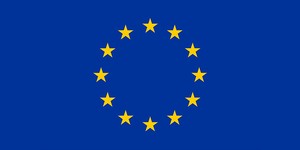Gambling Commission promises to work on game gambling
September 18, 2018 | 11:11
Companies: #gambling-commission

The UK's Gambling Commission has announced a partnership with 14 other European gambling regulators, and the Washington State Gambling Commission, to 'address the risks created by the blurring of lines between gaming and gambling'.
Previously, the Gambling Commission has indicated that 'loot box' mechanics in games are not within its purview, despite many games encouraging players to stump up real-world money in exchange for a slim and unspecified chance to 'win' an in-game item. The line it drew at the time was simple: If a game includes the ability to 'cash out' in-game items back into real-world cash, then it's gambling; otherwise, the rewards are not 'money or money's worth' and thus not subject to the same controls and regulations as 'true' gambling.
It's a ruling that sat poorly with many, especially under increasing criticism of 'loot box' mechanics - criticism which has seen the functionality pulled from games - and the Commission's own warning, issued in December last year, of the risks associated with 'skin gambling' in games like Valve's Counter-Strike: Global Offensive.
Now, it seems the Commission may be changing its tune, announcing a partnership with 14 other European gambling regulators and one US regulator to 'address the risks created by the blurring of lines between gaming and gambling.' 'We have joined forces to call on video games companies to address the clear public concern around the risks gambling and some video games can pose to children. We encourage video games companies to work with their gambling regulators and take action now to address those concerns to make sure that consumers, and particularly children, are protected,' explains Gambling Commission chief executive Neil McArthur. 'We want parents to be aware of the risks and to talk to their children about how to stay safe online. For example, unlicensed websites offering skins betting can pop up at any time and children could be gambling with money intended for computer game products.'
The declaration does not indicate a change in law surrounding gambling, however - at least, not yet. Instead, it promises a commitment to 'analyse the characteristics of video games and social gaming. This common action will enable an informed dialogue with the video games and social gaming industries to ensure the appropriate and efficient implementation of our national laws and regulations. Each gambling regulator will of course reserve the right to use instruments of enforcement given by its national gambling regulatory framework. We will also work closely with our consumer protection enforcement authorities.'
The declaration asks companies whose platforms or games are prompting such concerns to work with the regulatory authorities with a view to developing possible solutions, while also promising to raise parental and consumer awareness around in-game gambling. The full declaration is available on the Gambling Commission website (PDF warning).

MSI MPG Velox 100R Chassis Review
October 14 2021 | 15:04









Want to comment? Please log in.